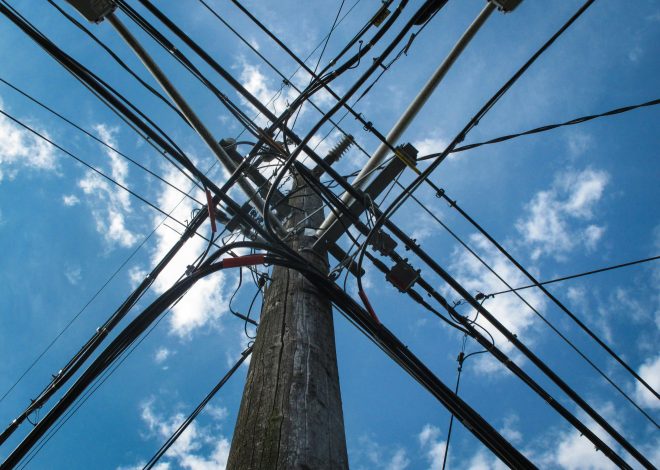
Is a small electric tankless water heater sufficient for a compact home?
Is a small electric tankless water heater sufficient for a compact home?
Are you living in a compact home and wondering if a small electric tankless water heater can meet your hot water needs? You’re not alone. Many homeowners are shifting towards energy-efficient solutions that maximize space while delivering reliable performance. The traditional bulky water heaters take up precious room, and the idea of endless hot water on demand sounds appealing. But is it really sufficient for your lifestyle? Let’s dive into the world of tankless technology and uncover whether this modern marvel is right for your cozy abode.
What is a tankless water heater?
A tankless water heater, often called an on-demand water heater, heats water directly as it flows through the unit. Unlike traditional models that store hot water in a large tank, these systems only activate when you turn on the tap.
When you need hot water—whether for a shower or washing dishes—the unit quickly warms small electric tankless water heater up the incoming cold water. This means you’ll never run out of hot water during your daily routines.
Tankless heaters are compact and can be installed in tight spaces where bulky tanks simply won’t fit. They also provide energy efficiency by eliminating standby heat loss associated with storing heated water.
This innovative design is becoming increasingly popular among homeowners seeking to save space and reduce energy bills without sacrificing comfort. With advancements in technology, small electric tankless options make this solution even more accessible for compact homes.
Advantages of a small electric tankless water heater
A small electric tankless water heater offers several key benefits for compact homes. Its sleek design saves valuable space, making it perfect for apartments or smaller residences where every square foot counts.
Energy efficiency is another significant advantage. These units heat water on demand, eliminating the standby energy loss associated with traditional tank heaters. This can lead to lower utility bills and a reduced carbon footprint.
Additionally, a small electric model provides endless hot water supply. No more waiting for a tank to refill; you enjoy hot showers back-to-back without interruption.
Maintenance is often simpler as well. With fewer components than conventional systems, there’s less that can go wrong over time. This reliability translates into peace of mind for homeowners who want consistent performance without frequent repairs or replacements.
Installation tends to be straightforward and less invasive compared to installing larger units or tanks, ensuring a hassle-free upgrade process.
Factors to consider before choosing a tankless water heater

Before diving into the world of small electric tankless water heaters, it’s essential to assess your specific needs. Start by evaluating your hot electric tankless water heater for small house water demand. Consider how many appliances or fixtures will run simultaneously.
Next, think about the flow rate requirements. This metric determines how much hot water you can get at once. If you’re in a compact home with limited usage, a smaller unit might suffice.
Don’t forget energy efficiency ratings. Tankless models are generally more efficient than traditional ones, but not all are created equal. Look for Energy Star labels to maximize savings.
Installation space is another critical factor. Ensure that you have adequate room and suitable electrical connections for your new heater.
Consider any local regulations or building codes that may affect installation choices or appliance types available in your area.
Recommended brands for compact homes
When considering a small electric tankless water heater, several brands stand out for compact homes.
Rinnai is renowned for its innovative technology and energy efficiency. Their models offer reliable performance while saving space.
Stiebel Eltron is another excellent choice. Their products are designed with sleek profiles that fit seamlessly into tight spaces without compromising power or efficiency.
EcoSmart also deserves mention for its user-friendly features and eco-conscious design. Their heaters provide adjustable settings to cater to varying hot water needs.
Rheem provides solid options known for durability and ease of installation. They have a range specifically tailored for smaller living environments, ensuring you receive consistent hot water on demand.
Each brand has unique strengths; researching individual models will help you find the perfect match for your compact home.
Installation and maintenance tips
Installing a small electric tankless water heater is straightforward, but it’s crucial to follow the manufacturer’s guidelines. Start by selecting a suitable location, ideally close to your main water line and power source. Ensure that the area has adequate ventilation.
When mounting the unit, use sturdy brackets and check for level alignment. Be mindful of wiring; hire an electrician if needed to handle electrical connections safely.
Routine maintenance keeps your system running efficiently. Regularly inspect filters and clean them as necessary. Descaling every six months helps prevent mineral buildup, especially in areas with hard water.
Keep an eye on temperature settings; adjusting them can save energy while still providing comfort. Document any issues or repairs for future reference, ensuring you’re always informed about your system’s performance.
Cost comparison with traditional water heaters
When considering a small electric tankless water heater, cost plays a crucial role. Traditional water heaters typically involve upfront expenses for the unit and installation. However, their operating costs can add up over time.
Tank-style heaters continually heat water, which leads to higher energy bills. In contrast, tankless models only warm water as needed. This efficiency often results in lower monthly utility costs.
Maintenance is another factor to weigh. Tank systems may require regular flushing to prevent sediment buildup. Conversely, small electric tankless units generally have fewer maintenance demands.
While the initial price of a tankless heater might be higher than traditional options, its long-term savings on energy bills and reduced maintenance can make it an appealing choice for compact homes seeking efficiency without sacrificing comfort.
Conclusion

When it comes to compact homes, a small electric tankless water heater can be an excellent solution for your hot water needs. These units offer endless hot water while saving space and energy. They are efficient and often more cost-effective in the long run compared to traditional tank heaters.
However, it’s essential to consider factors such as flow rate, installation requirements, and maintenance before making your choice. Not every model will suit all household sizes or demands. Researching recommended brands can help ensure you select a reliable unit that fits your specific needs.
Installation is relatively straightforward but may require professional assistance depending on local codes and existing plumbing systems. Regular maintenance is key to enhancing longevity and performance; keeping filters clean and checking heating elements periodically can make a difference.
Cost comparisons reveal that while the initial investment may be higher than conventional units, savings on monthly bills can quickly offset this expense over time. With advancements in technology focusing on efficiency, opting for a small electric tankless water heater could very well be one of the smartest decisions for modern compact living spaces.
Your home deserves hot water when you need it without consuming unnecessary resources—embracing this innovative solution might just lead to greater comfort in your everyday life.


